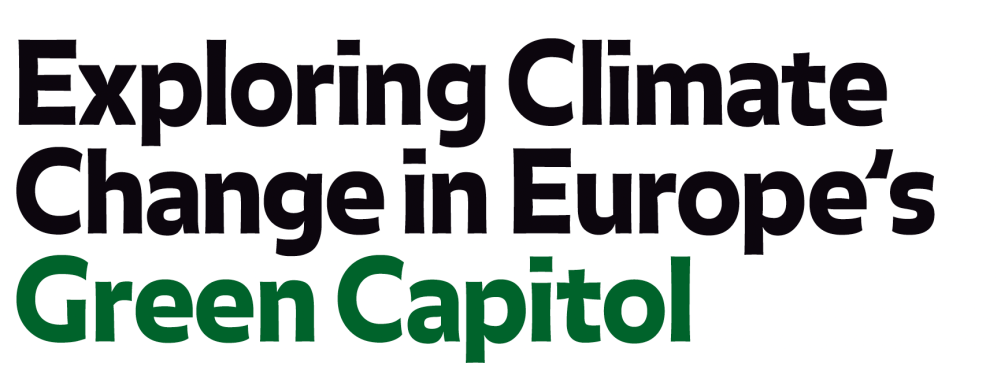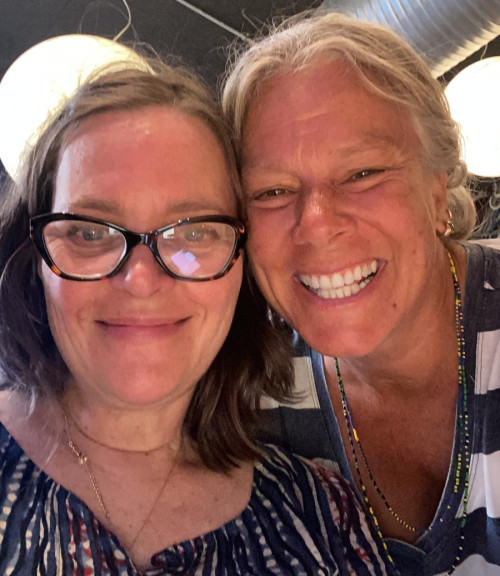Creating Global Citizens

Purchase College received a competitive SUNY Chancellor’s Grant for Innovative Study Abroad Programs (ISAP Grant) in 2020 to fund a unique study abroad opportunity.
The grant supports travel to non-traditional locations to study interdisciplinary topics that attract students from majors across the college. And it lowers the financial barriers for students to participate, helping meet the college’s goal of making global learning accessible to all.
Associate Professor of Liberal Studies Ragnhild Utheim and Distinguished Professor of Sociology and Gender Studies Lisa Jean Moore created “Politics and Practices of Climate Change” in partnership with the University of Oslo.
This innovative and interdisciplinary program examines global environmental challenges by studying them locally in Norway, an ideal location. Renowned for its focus on renewable energy, environmental policy, and regulatory systems, Norway was named the European Green Capital in 2019 by the European Commission, and the city of Oslo committed to a 95% reduction in emissions by 2030.
The professors were finally able to lead the trip this year after the pandemic halted all study-abroad travel in the summer of 2021.
A Tapestry of Solutions
For Moore, the program would be a success if students could see differences in the American and Norwegian responses to climate change. “The outcomes far exceeded my expectations,” she reports.
The variety of field trips highlighted how Norway weaves environmental responsibility into all aspects of life. The group visited several technologically advanced recycling facilities and a carbon-neutral urban development project, and spent three days at Oslo City Hall learning about successful collaborative eco-governance between public agencies, private organizations, and citizens in action.
They also visited Klimahuset, a climate museum on the grounds of Oslo’s Botanical Gardens; a Nature Kindergarten, where young children spend up to 70% of their time outdoors; and Losæter, an urban art and agriculture greenspace nestled between construction sites and traffic.
“Students got to experience firsthand how Norway embeds climate literacy in all of human life,” says Moore.
A Hierarchy of Needs
Utheim hoped students would see the connection between Norway as a welfare state and its ability to tackle climate change. When the state meets basic human needs, such as healthcare and higher education, its citizens are free to focus on larger issues like sustainable lifeways. Students interviewed local residents, and some feedback reassured Utheim that the message broke through.
One student wrote, “One interviewee expressed that she was not sure if she would be as active in climate change if she was not Norwegian and consequently benefitted from a strong welfare state system…. This aligns with … [course readings] that posited Maslow’s hierarchy of needs as a reason for public inaction on climate change.”
Online and Onsite
The six-week hybrid program combines two weeks of synchronous and asynchronous coursework in preparation for travel, three weeks of learning on the ground, and one final week of virtual classes to conclude.
Senior Pamela Trevisan (Creative Writing, minors in Literature and Philosophy) had always wanted to participate in a study abroad program but feared she couldn’t afford it. The hybrid model allowed Trevisan to continue working at her campus job during the first two weeks and to visit family in Paris during the final week.
Utheim values the model’s inherent time for preparation, not only on the topic of study but on Norwegian life, culture, and traditions.
“Perhaps most important, we were able to get to know one another and set the tone for what traveling and learning together would be like,” she says.
Internal Outcomes
Trevisan was struck by the city of Oslo’s cleanliness and organization, and also “how the city planners, scientists, and citizens all participate in caring for the environment. I have never been to a place where they put the environment as the top priority.”
But it’s what she learned about herself that’s lasting.
“I think the most important tool that this experience gave me was an increased sense of confidence in myself,” Trevisan says.
And it showed her a path forward.
“All the homework and readings, coupled with my experience in Norway in a harmonious way, made me realize the importance of being informed and prepared as a learner,” she says. “The daily field trips showed me the infinite possibilities of work and how to be a participating member of society. Meeting the citizens showed that I am not far away from them at all,” she says.
That suits Moore just fine.
“I think the most gratifying part of this experience was seeing how the students transformed their understanding of themselves as global citizens,” says Moore.
Mission accomplished.
—Kristi McKee